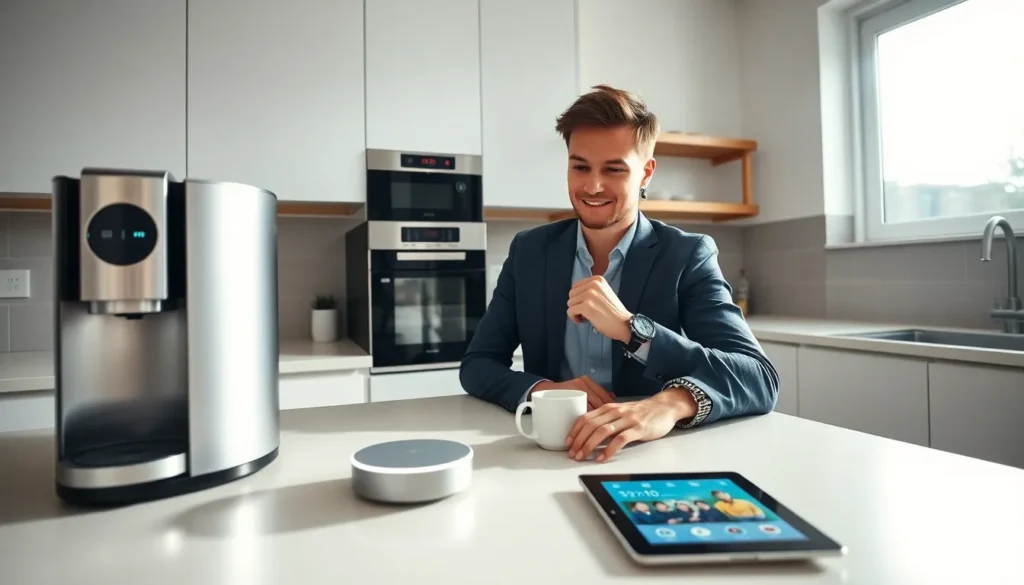In a world where technology seems to be the answer to nearly every question, one can’t help but wonder, has society truly leveled up, or are we just more plugged in? From the morning alarm that nudges you out of bed to smart fridges that remind you to buy more milk, technology is woven into the fabric of everyday life. It’s like having a digital Swiss Army knife: versatile, handy, and sometimes a bit baffling. Let’s explore how technology transforms our daily routines, enhances our lives, and even challenges us in ways we never anticipated.
Table of Contents
ToggleThe Role Of Technology In Modern Society

Technology serves as the backbone of modern society, influencing everything from how businesses operate to how individuals interact. In the workplace, tools like cloud computing streamline processes, while industries such as healthcare harness technology to improve patient outcomes. On a societal level, it propels economies, facilitates global communication, and fosters relationships that transcend geographical boundaries. In essence, technology is not just a tool but an integral part of the human experience, continuously reshaping the way people live, work, and connect.
How Technology Enhances Communication
Gone are the days when sending a message meant waiting for a letter to arrive via carrier pigeon. Technology has transformed communication into an instant affair. Thanks to smartphones and social media, people can communicate across continents in mere seconds. Platforms like WhatsApp and Zoom have made it possible to work with teams spread around the globe. Video calls can bring family together, even when miles apart. It’s no exaggeration to say that technology acts as a bridge, closing distances and fostering connections that once seemed impossible.
Technology’s Impact On Health And Wellness
In the realm of health and wellness, technology is a game-changer. Wearable devices like fitness trackers have transformed how individuals monitor their physical activity and nutritional intake. Apps designed to promote mental well-being are increasingly popular, providing resources for mindfulness and stress management at one’s fingertips. Also, telehealth services allow for convenient medical consultations, surrendering the need for lengthy waiting times at clinics. So, the integration of technology into healthcare has enhanced not only access but also the overall quality of patient care.
The Influence Of Technology On Education
Education has also witnessed a monumental shift because of technology. Online learning platforms and educational apps provide students with valuable resources that were once confined to textbooks and classrooms. The pandemic accelerated this trend, as schools transitioned to virtual formats almost overnight. Now, learners can access information and collaborate with peers from an array of sources, crafting personalized educational experiences. Technology empowers educators to innovate lesson delivery, turning mundane topics into interactive learning adventures. This revolution in education certainly changes how knowledge is imparted and acquired.
Smart Homes And The Internet Of Things (IoT)
When it comes to convenience, smart homes are leading the charge. The Internet of Things (IoT) enables devices to connect and communicate in ways that enhance daily living. Imagine waking up to lights that gradually brighten, or having your coffee maker sync with your waking hours. Smart thermostats can learn your preferences, optimizing energy usage for comfort and savings. These innovations sharpen efficiency and redefine the boundaries of home automation, making life just a little easier and more enjoyable.
Challenges And Considerations Of Technology Use
Though technology has numerous benefits, it’s not without challenges. The rise of social media has led to concerns about privacy, cyberbullying, and mental health implications. Also, over-reliance on devices may lead to diminished interpersonal skills and face-to-face interactions. In workplaces, juggling multiple communication platforms can result in information overload, leading to burnout. Recognizing these challenges is crucial: a balanced approach to technology can empower individuals while minimizing pitfalls, facilitating a healthier and more productive lifestyle.





